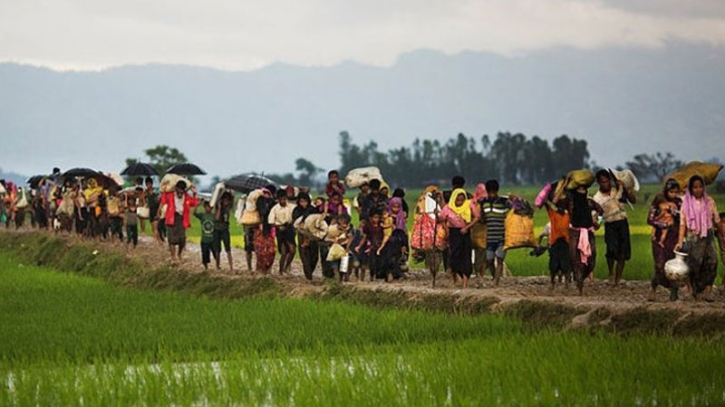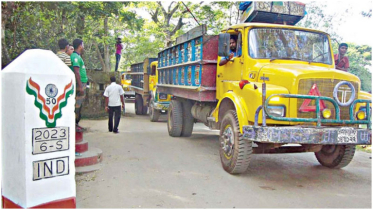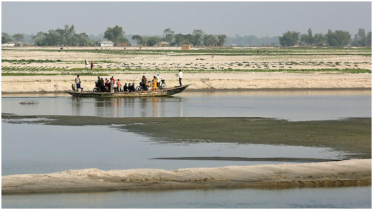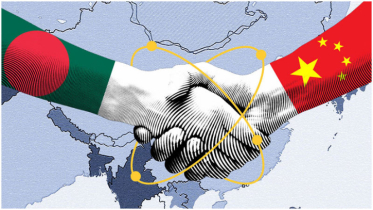Bangladesh might face another Rohingya influx soon

In August 2017, a deadly crackdown by Myanmar's army on Rohingya Muslims in Rakhine State sent hundreds of thousands fleeing across the border into Bangladesh. Those persecuted joined around 300,000 people already in Bangladesh from previous waves of displacement, effectively forming the world’s largest refugee camp. Today, Bangladesh is hosting over 1.3 million Rohingyas in Cox's Bazar and Bhasan Char, where refugees reside in 33 extremely congested camps. Not a single Rohingya has been repatriated so far, though there were attempts to begin repatriation in the past years.
As the Rohingya crisis marks its seventh anniversary, the horrific situation in Rakhine State looks disturbingly familiar. Once again the crisis is killing Rohingya men, women, and children, causing towns to empty, and eroding the remnants of their history and identity. Furthermore, the military, its allies, and the Arakan Army have trapped members of the Rohingya community, leaving them with no path to safety. Many are seeking shelter in refugee camps across the border in Bangladesh, where experts anticipate another Rohingya influx in the coming days.
Scenario in Bangladesh
After the mass exodus of August 2017, seven Augusts have come and gone, and much has changed, but the scenario in Bangladesh remains unchanged. The deteriorating camp situation and growing vulnerability among the refugees are further challenging the sustainability of their stay in Bangladesh. Rohingya families remain trapped as refugees or internally displaced persons, serving an indefinite prison sentence until Myanmar establishes conditions that would allow them to return home with basic rights such as safety from violence, citizenship, free movement, health, and education.
Notably, the Rohingya refugees rely entirely on humanitarian assistance for protection, food, water, shelter, and health. Seven years later, the dwindling financial commitments by the international community are affecting the work of various humanitarian agencies on the ground. The camps in Cox's Bazar are grappling with a shortage of food supplies, health and hygiene issues, and a lack of education for the Rohingya children. Providing humanitarian aid to the one million Rohingya in the camps is challenging for Bangladesh because of the dwindling supply of funds and Bangladesh's economic state. The camps require approximately $852 million in humanitarian aid this year. So far, less than 40 percent of the sum has come through.
Given these circumstances, accepting any more Rohingyas from Myanmar will only exacerbate the huge burden that Bangladesh is already facing. This small country is struggling to ensure humanitarian support amid declining funding, while repeated efforts to repatriate them did not materialize. Following this, Bangladesh has clearly stated that it is not possible to accommodate any new Rohingya. However, in recent months, the influx of Rohingyas into Bangladesh has grown in small groups. If that continues, no large influx is needed; gradually, a good number of Rohingyas will cross the border.
Deadly attacks in Rakhine State
Myanmar’s Rakhine State is facing a terrifying situation similar to the run-up to “genocidal violence” seven years ago against the persecuted Rohingya minority. Since November last year, the Arakan Army has captured 10 key towns -- nine in Rakhine and one in adjacent Chin state- according to a report of the International Crisis Group. Extreme violence, including the use of heavy weaponry, drone strikes, and arson attacks, has razed entire villages, killing, injuring, and displacing civilians. Over 320,000 people were displaced in Rakhine and Chin states. Both sides of the conflict are forcibly recruiting civilians and stoking ethnic tensions between communities.
Again, intense combat in Rakhine State’s Maungdaw township between the Arakan Army and the Myanmar military has caused thousands of Rohingya to seek shelter in Bangladesh. Both of the parties will try to use Rohingyas as the front-line force in the war, which will create more persecution and make them more likely to flee neighboring Bangladesh. Over the last couple of weeks, more than 1,500 Rohingya have crossed into Bangladesh, and approximately 5,000 more have been waiting for several days near the Naf River for an opportunity to cross into Bangladesh.
Therefore, the pressure on Bangladesh to host more Rohingyas appears simply disastrous. The global community must now come forward and support Bangladesh in its no more Rohingya stance. This assistance includes increasing aid for humanitarian purposes, supporting community development programmes, and putting pressure on Myanmar to make rapid progress in the repatriation process in Rakhine State. Also, Bangladesh needs to closely follow the developments relating to Myanmar. Bangladesh may find a solution if it can incorporate the issue into regional or global-level negotiations.
As of now, about 630,000 Rohingya remain in Myanmar. The sharply deteriorating situation across Myanmar may compel them to leave the country. The number of countries offering resettlement opportunities to Rohingya should be increased. Such relocation could lift some of the burden on Bangladesh and install new hope into the Rohingya for living without discrimination. It requires a spirit of goodwill and solidarity between countries -- a thing missing up until now.
The Rohingya can't go back to their place, nor can they stay permanently where they are at this moment. Remember, no one would opt for exile unless forced to do so. A real solution can be found only through international coordination. Most importantly, any solution must involve consultation with the Rohingya community itself. Repatriation is not an option anymore; neither is the inclusion of rest of the Rohingya in Myanmar. The new interim government of Bangladesh will need a feasible policy surrounding this possible Rohingya influx. Under this circumstance, Bangladesh should consider maintaining contact with the Myanmar government, the Arakan Army, and other stakeholders to find a way out.
Akib Rahman Shanto is a freelance contributor and Post-graduate student of International Relations.
Source: Dhaka Tribune
.png)




